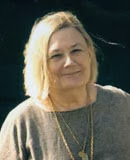About Me

- Anita Burgh
- I am a writer - late developer since I wasn't published until I was 50. I have now written 23 novels, numerous short stories and articles.
Followers
Blog Archive
My Blog List
Powered by Blogger.
Slideshow
Saturday, 12 December 2009
Jenny is confused by pace has she too much or too little? Katie wants to know how to sustain it. Mary Jon asks how to judge the balancing of pace?
Why is pace so important in commercial fiction? If you think page turnability instead, it makes it clear why it is. Without it the reader is more likely to give up. Without it you are unlikely to sell it in the first place.
What is pace? Pace is the engine of the book. It keeps us moving forward, it keeps us reading.
However, beware - too often pace is misunderstood and is regarded as a need for excitement, drama, cliff hangers, big events. The chapters are littered with hooks. Pace can be all of these things – in the right place, time and amount. If not treated with respect, if not controlled, then the opposite could happen and this pace will be killed off.
How? Overuse and exaggeration of pace reminds me of many of the singers on the X Factor – they belt out the songs, the louder they sing, the more noise they make the better they think they sound. We all know that is not the case.
The Engine.
Lets go back to my analogy of the engine. Humming away in the background, giving the book life and movement but unnoticed –that is pace. It is there all the time. It’s like the beating of your heart – rhythmic, stable, constant.
Suddenly the engine is revved up, just as hearts beat faster. As dramatic moments, thrills, dangers are added making us sit up, making us read.
And then the engine slows, a calmness is created. And what does that do? It highlights the drama you have just allowed to unfold, it does not diminish it.
Those singers need variation in their songs. We need variation in our writing. If there is too much drama or too much calmness then the work has a sameness to it which is the antithesis of pace.
Barbara Cartland.
Barbara Cartland is the mistress of pace. She wrote short, snappy paragraphs often of a couple of lines, which makes them easy to read, she uses hooks everywhere. There is pace in her books by the bucket load and she gets away with it.
So why can she but I advise that you don’t?
Because her books are short. If that form were used in a long book of over 100,000 words the reader would become exhausted by the relentless excitement, you would tire of it. .
I call this boom-boom pace.
Plot.
So often the most important tool of pace you have in your armoury is overlooked and that is the story itself.
A good strong plot with good strong characters which grasps the interest, holds it, leaves the reader asking for more. It is so obvious but perhaps that is why it is neglected.
Katie to sustain pace – a well structured story. Jenny a constraint on boom-boom isn’t a bad thing. And Mary Jon – you know, I think that the problems here are mainly because you are all worrying far too much. There is only one voice that will tell you honestly – dear old Inner Voice. And you can help IV by reading out loud, that will soon show up the bits that are dragging.
Once again this is a huge subject so we’ll do more next week when we look at what adds pace and what detracts.
Subscribe to:
Post Comments
(Atom)






That's it, isn't it? Pace is the whole thing, not just the boom-boom.
ReplyDeleteIt's not just the running for the bus, it's the collapsing onto the seat and letting your heartbeat return to normal afterwards.
Thank - as always - for the reminder!
Thanks - that's incredibly useful advice on pace - exactly what I needed and just when I needed it. Looking forward to the next post.
ReplyDeletelove, Janice x
I need to remind myself of one big point - pace is not just a scene or an arrangement of scenes. It's going to make a difference over the next few weeks as I look at pace as the whole thing.
ReplyDeleteAlso, reading out loud. I've been doing that ever since you first suggested it. I still find that THE most useful editing tool I've ever used.
Can't wait to read the part 2!
Something I always try to do, the calm after the storm, for the reader to catch their breath. Congratulations on a great career, you're an inspiration!
ReplyDeleteMaggi Coleman